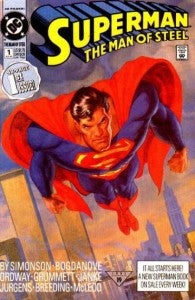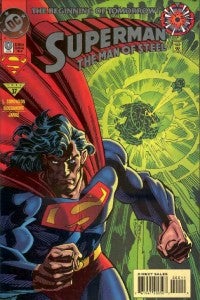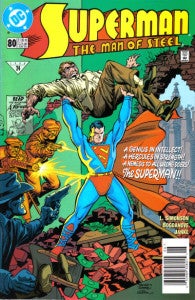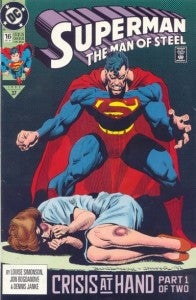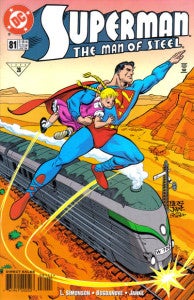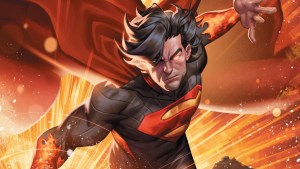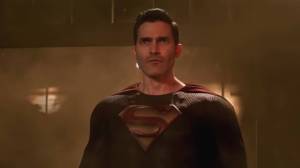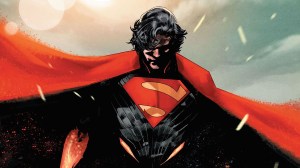With about a month to go in his Kickstarter campaign, longtime Superman: The Man of Steel artist Jon Bogdanove’s Strongman could use a herculean lift.It’s a project on which he’s working with his son, Kal-El Bogdanove, and their collaborator Chris Faiella–but more than that, it’s the culmination of something that began as a video game pitch and has become a comic book after a long gestation period. They’re funding it via Kickstarter, but as Kal-El explained to us during San Diego Comic Con International, there’s a bit of sticker shock on the part of some would-be donors who don’t understand that folks like letterers and colorists are criminally underpaid in mainstream comics, and that with Strongman they’re hoping to compensate the creators who work with them a bit more fairly.They’re shooting for a $200,000 goal, and weren’t totally sure whether launching over Comic Con weekend would be a boon (“Hey! Everybody’s talking about comics! Great!”) or an obstacle (“Hey! Everybody’s talking about Guardians of the Galaxy and doesn’t care about our indie book!”), but Bogdanove appeared not only in a “Spotlight On…” panel, but also at a panel put together for the Post-Crisis Superman creators as part of Superman’s 75th anniversary festivities at the convention.Before the show began, though, we talked with him about Strongman, but wandered quite a bit into Kryptonian wilds. You can check out some of his reminiscences about the Man of Steel below, along with how they’ve informed his current work.
Longtime Man of Steel Artist Bogdanove: “I Hate an Angsty Superman”
With about a month to go in his Kickstarter campaign, longtime Superman: The Man of Steel artist […]


